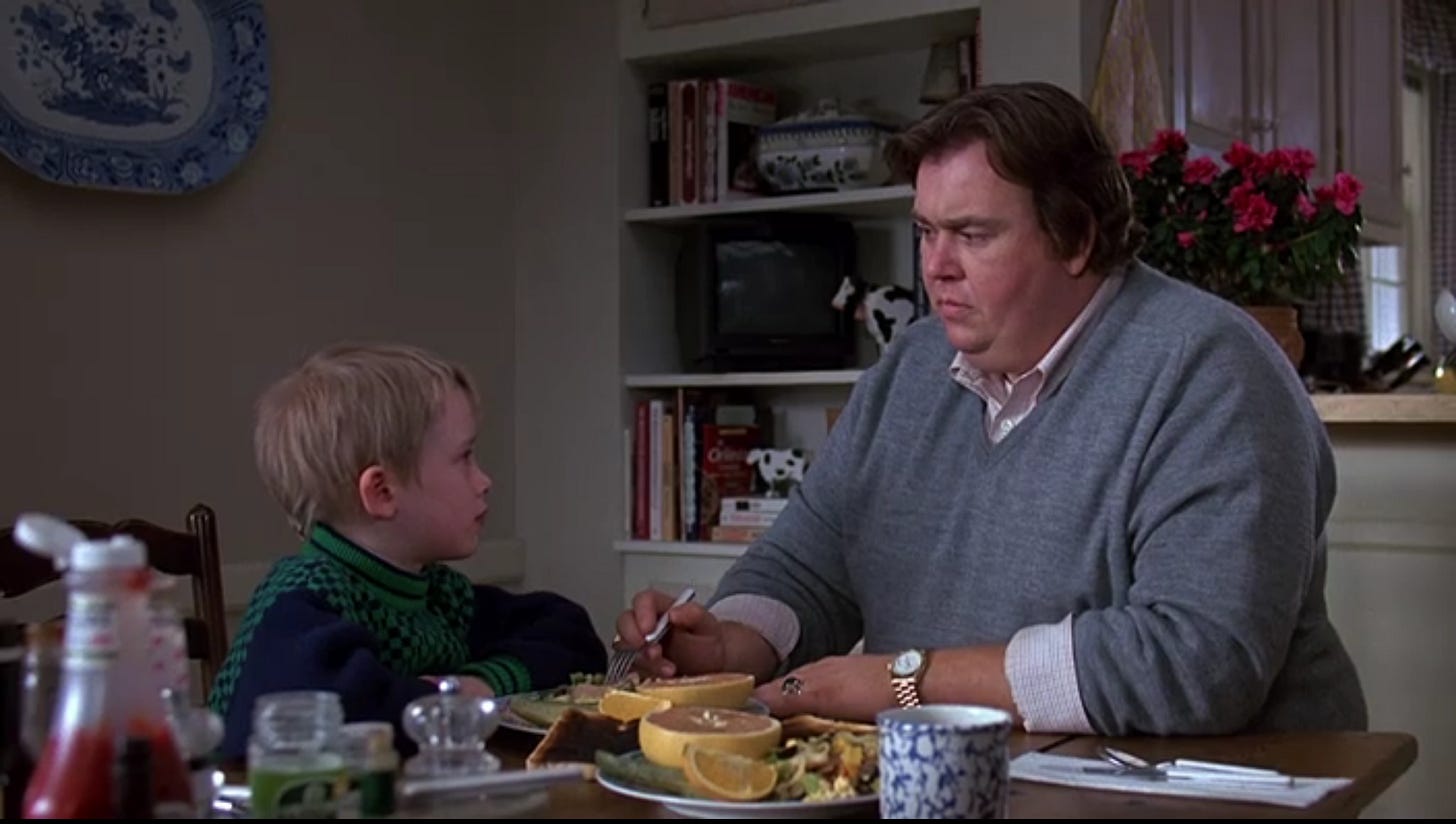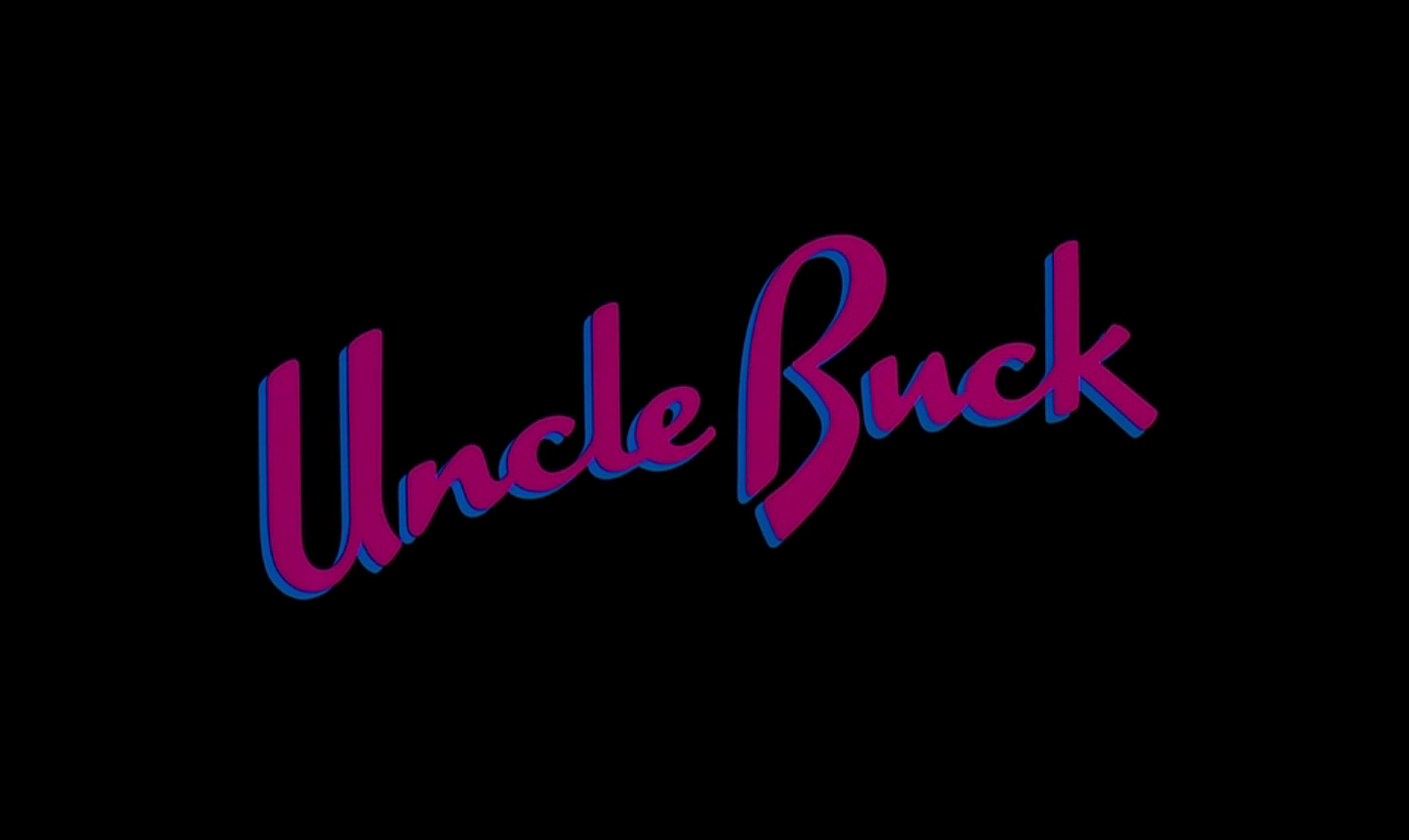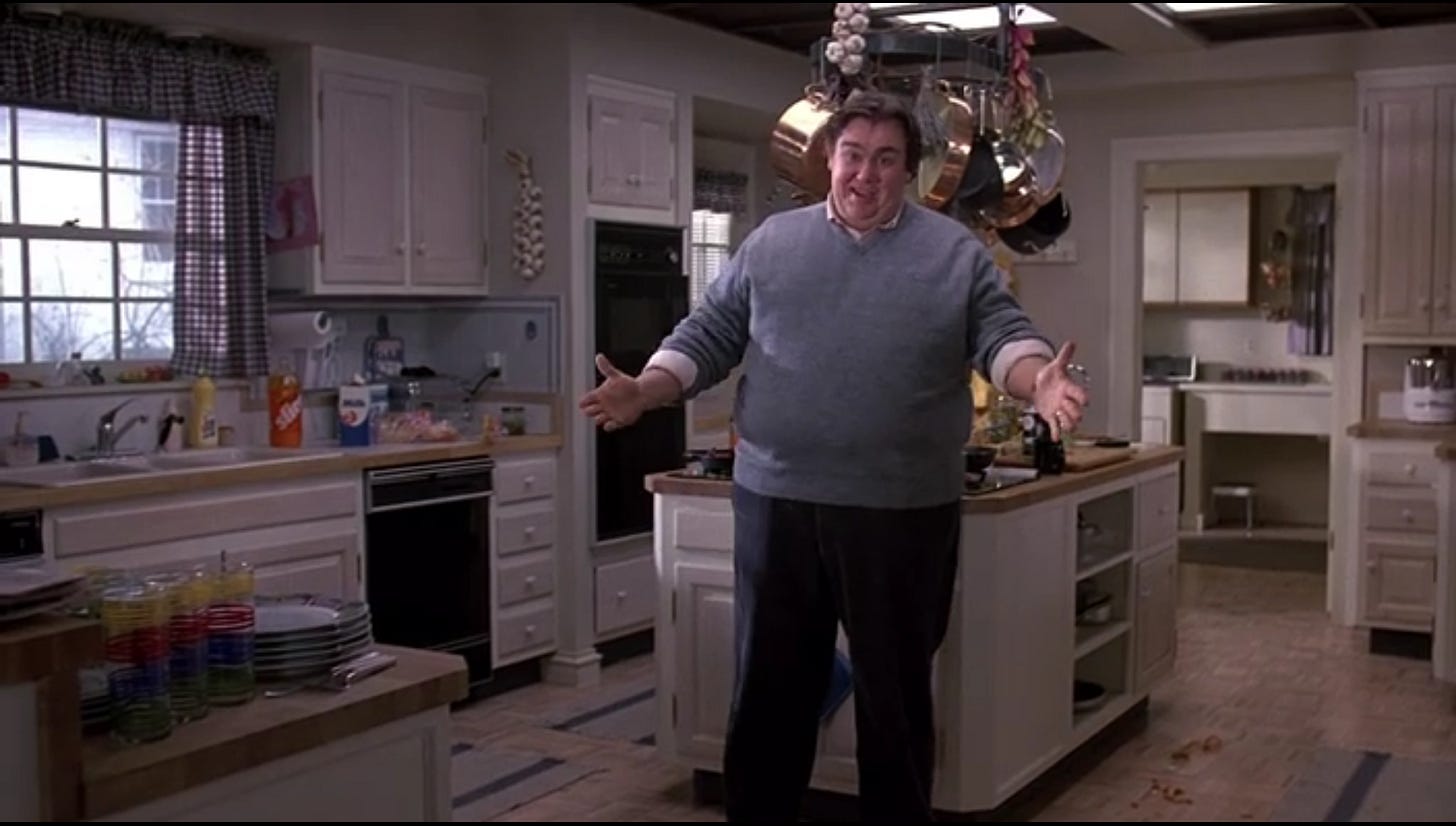Uncle Buck
Golden comedy opportunities left on the drawing board
The late writer/ director/ producer John Hughes was born February 18, 1950 in Lansing, Michigan. He’d be celebrating his 75th birthday this month. Video Days kicks off its inaugural month with a retrospective of ten of the filmmaker’s pictures.
UNCLE BUCK (1989) is such a wonderful idea for a situation comedy that given the pedigree of its writer/ director, it must have seemed like everything would click on its own. John Candy stars as a 40-year-old bachelor who apparently supports himself as a professional gambler. When his sister-in-law, who’s moved her family from Indianapolis to the Chicago suburbs for work, has to return home with Buck’s younger brother to attend to her ailing father, they have no choice but invite Buck to move in and look after their kids, a sullen 15-year-old (Jean Louisa Kelly), loquacious 6-year-old (Macaulay Culkin) and his adorable twin sister (Gaby Hoffmann).
The idea sprang from the mind of John Hughes, who in addition to writing the screenplay, also produced (with Tom Jacobson, then president of Hughes Entertainment) and directed, with Universal Pictures financing and distributing. Shooting commenced January 1989, with the then-vacant New Trier West High School in Northfield, Illinois serving as production facility, its three empty gymnasiums turned into soundstages, where interiors for the Russell home, among others, were shot (New Trier West, a freshman-only public school, closed in 1984 for lack of a sufficient student body before reopening in 1998. In that period, Hughes also shot interiors for Home Alone and Curly Sue on campus). Opening in August 1989 in the U.S., the comedy occupied the #1 slot its first five weekends of release and stayed in the top ten for nine weeks. Like most of Hughes’ work as a director–namely The Breakfast Club (1985), Ferris Bueller’s Day Off (1986) and Planes, Trains and Automobiles (1987)--a large amount of material was written, shot and left on the cutting room floor. But Uncle Buck marked the first time Hughes and his editors (Lou Lombardo, Tony Lombardo, Peck Prior) were unable to cook a satisfying meal from their raw ingredients.
Running 100 minutes, the film is missing scenes it needed to work beyond the sketching stage. Candy plays himself, not a gambler, who’d live and breathe poker or horse racing and use the suburbs to hide from those he owes money, or at the very least, lay out his next score. Candy is such a gentle giant, like a Bernese Mountain Dog, it’s not credible that his sister-in-law would despise him. If Buck were truly a degenerate–the type Bill Murray played, or a pompous jerk of the Chevy Chase variety–the film might have been interesting. Candy, a good actor with tremendous likability, isn’t a creative enough comic to carry a comedy, and never having a better opportunity to prove otherwise, is humorous but rarely funny. Hughes recycles Planes, Trains and Automobiles, pairing Candy’s common man with an uptight suburbanite, this time a teenage girl. Jean Louisa Kelly, who after graduating from Columbia University represented MCI in a series of commercials, doesn’t have the sense of special that Macaulay Culkin does, and her scenes suffer a bit in comparison. The script does give her character room to reconcile with her family rather than remain a malcontent, but all the change occurs on her side of the cultural divide, not Buck’s. The film gets stuck in knuckle-dragging stereotypes in which the man of the house feels the urge to terrify a teenage boy out of any impulses he has toward a teenage girl. Worse than portraying Buck in a more unflattering light than the boy, they’re just not funny.
Video rental category: Comedy
Special interest: The ‘Burbs





Great diagnosis, Dr Valdez! Now I'm interested, what would be your recommended remedy? If Hughes had gone nastier with the Uncle Buck character (e.g., with Chevy Chase or Steve Martin), it would have made more sense that the sister in law didn't trust him. But how to balance that against the teenager and children characters without making it seem cruel? Are you thinking a Home Alone approach, where the kid heroes outwit and conquer the bad guy adult? Or... some other way to engineer a redemption arc?
Great analysis… Thanks Joe!✌️CPZ